All kinds of actions and events can set you back in the Google Maps 3-pack, the organic results, or both: Google Business Profile pages that get removed, having a location in the same building or complex as a bunch of your competitors, hosting or other errors that prevent Google from accessing your site, getting your title tags wiped out, being at the business end of an algorithm update, or buying thousands of shaky links. It’s important that you can ID the landmines. It’s equally important to know what is not a landmine.
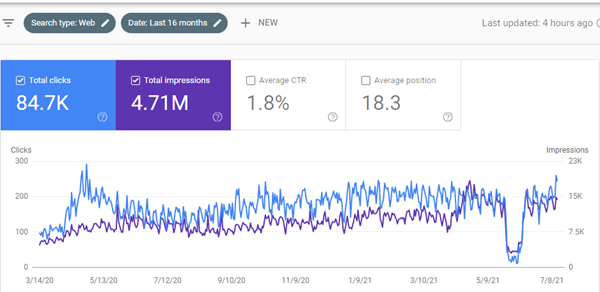
Over the past 86 “Internet years,” I’ve had many a conversation with business owners (and often other SEOs) to the effect of, “Do you think ______ caused my rankings to dive?” More often than not I say “No, here’s what I think happened,” and then usually I, we, or they put the theory to the test. Usually it takes a while before the problem (or combination of problems) becomes clear, or at least clearer. On the occasions I’m (temporarily) wrong, it’s always because I picked the wrong usual suspect out of the lineup of usual suspects. It’s never because of the factors that never seem to cause a drop.
So, what factors never seem to cause a drop? They’re the 21 concerns I describe in the list below. They are things that I have simply never seen cause one’s rankings to drop. Some may be trouser-darkening events for other reasons, though.
While we’re doing the CYA clauses, I’ll add one more: I’m not necessarily for or against doing any of these things. Every situation is at least a little different, and I don’t know the particulars of yours.
All I’m saying is that I can tell you 21 things that I am certain did not cause your drop in the local rankings, and that are unlikely to cause you problems in the future. The less effort you can waste on perceived problems, the more you can focus on real problems and on what’s past those problems. Best of all, some of the things you may have feared hurt your rankings often can help them. I hope this post adds a little peace of mind.
1. Keyword-stuffing the Google My Business name. (Not that I suggest you do that; I sure hope you don’t.) If competitors send in a Maps edit on your name, and Google approves it, Google will just change your name. You can change it back, and the cycle may repeat. Likewise if Google changes your name spontaneously (i.e. not at the suggestion of a competitor). You may go back and forth with them. If the shoehorned-in keywords were the ONLY reason you ranked for those terms, then eventually their absence will mean you need to start working for your rankings. But the mere fact of having your name pruned by Google doesn’t affect your rankings more than that, at least in my experience.

2. Slowing down the pace of new Google reviews. If your recent Google reviews are unimpressive or the last one was 2 years ago, then maybe you’ll get fewer calls, but your rankings will be fine. Getting new Google reviews at a steady pace (even if it’s slow) can help your 3-pack / Maps visibility for niche terms, and it may help you a little for competitive terms where Google is deciding between strong competitors by inches or ounces. But that just means a slowdown on Google reviews is a missed opportunity, and not a mistake that sets you back.
3. A bad Google review. Similar deal as with my “pace of new Google reviews” point (above). If it’s both harsh and credible, then you may see a drop in leads. If you get so many bad reviews that you get a 1-star or 2-star average and nobody clicks on you, then the rankings may slip. But just about everyone gets a bad review sooner or later, and anyone can whack anyone else with a bad review, which would explain why I’ve never observed a drop from a bad review here and there.
4. Getting NEW Google reviews filtered. (Or Yelp reviews, for that matter.) The review never helped you, so its absence won’t hurt you. Google filters reviews constantly, for reasons good and bad, for businesses that rank well and those that don’t.
What about when Google filters reviews that had been showing up on your GBP page? Jury’s out on that. If you lose a large enough % of reviews, and if you’re in a market where your competitors’ local SEO game is also strong and it’s always neck-and-neck, then losing those reviews in bulk may knock you down in the 3-pack results (though your organic rankings for local terms will stay the same).
5. Building tons of citations. Let’s say more than 50. It’s a big waste of time, after you’ve got listings on the basic sites and maybe on a few industry-specific or geographically focused sites. And it’s a pain to update all of those listings, if you ever need or want to. No harm beyond that, though. Most of the so-called links you get from most directories are nofollowed anyway, so no need to be concerned about getting too many inbound links in a short span of time.
6. Cancelling Yext or Moz Local or similar local listings software. A few listings may disappear over time, but for the most part all that happens is the listings go unclaimed. At most maybe you’ll need or want to claim and correct listings that are no longer correct, but you won’t experience tanking rankings.
7. Not bothering to claim listings that have the correct info for your business. As long as non-Google sites like Yelp, YP, BBB, and so on have all the info you want and none of the info you don’t, you don’t benefit from claiming those listings. It’s usually easy to do, but sometimes it’s not, and it’s always an errand – and you may not need any more errands right now.
8. Allowing some duplicate or incorrect citations. Your citations do not need to be perfect. It’s that simple.
9. Paying for a link or a few links. Google is used to seeing all kinds of links: locally relevant links, professionally relevant links, links that stay up for a long time, links that come and go quickly, links from shady sites, links that have typos in the anchor text, and so on. Most high-performing sites have a mishmash of backlinks, and some invisible sites do, too. If paying for a membership, a sponsorship, an expired domain that you 301-rediect, or someone’s vig is the only way you have to get a good link, then that may be a problem: Sooner or later it will look strange to Google, and either it’ll stop working, or you may incur a penalty, or both. But if a relative sliver of your good links involved money changing hands at some point, and especially if those sites are relevant to what you do or where you’re located, don’t worry about it. It is important to have multiple irons in the golf bag.
10. Not blogging much or at all. If blogging is the only way you generate traffic, then of course slowing down on it will mean less traffic. If it’s the only way you ever get new links, or if it’s your only occasion to go in and add internal links to other pages on your site or tighten other bolts, then maybe your site will rust. But most businesses that rank well don’t ever blog. Poke around the local search results for different industries for 5 minutes and you’ll see what I mean. They rank for other reasons. Your Maps and other local rankings depend on other activities. If you can blog and have it advance your goals, great, but there is absolutely no reason you need to do it.
11. Stuffing title tags. If you do a Mr. Potato Head number on the title tag of a page that does well, your rankings may change, and not necessarily for the better. If Google considers your title tag too plump, it won’t show the whole thing in the search results. (It usually shows a title tag that’s different from what you specified anyway.) If you add in a ton of keywords that you’ve done no other work to rank for, and you expect that one change to help you rank for all those terms, then you’ll come up short more often than not. But let’s say the rest of the page has content on multiple services, or is geared toward multiple cities, or both, and you just want the title tag to reflect all of that. Totally fine. Go long. I have seen great results from doing that.
12. Creating weak “city” pages. The worst that happens is they don’t rank. (They probably won’t rank, if you just hurled them out.) Either you’ll try to revive them, or you’ll give up and try something else. But I’ve never seen the arrival of bad city pages affect the visibility of good pages, or the Maps / 3-pack rankings of a business that’s strong in other respects.
13. Using an exact-match domain for your business that may or may not match the name of your business. If the name of the business is relevant to your industry, your area, or both, then that helps a little, and having a domain name that matches may help a little more. That’s been plain as day for some time. But what if the name of the business is all branding and no keywords, while the domain is very “optimized”? Or how about the other way around? I have not seen that Google dings you for either kind of mismatch. Just trust your gut on the branding.

14. Recycling content. I’m talking mainly about using content on one page that’s extremely similar to what you’ve got on other pages. Pages that are 95% full of boilerplate content can rank just fine. They don’t always, of course. If the competition is tough or dense, those pages or your site as a whole may need work in other areas. Now, you should differentiate the content as much as you can, especially when you can showcase your experience in performing this or that service, working in this or that place, working for this or that type of customer, etc. I’m just saying the rest of your site won’t suffer just you neglect to do that on certain pages. What about copying and pasting reviews onto your site, or reusing descriptions from your YouTube videos on your site, or reusing the same photos or reviews or videos (etc.) in multiple spots on your site? Also not a problem.
15. Heavy internal linking. On the contrary, I’ve found that internal links are crucial for specific pages or terms I’m trying to bump. In theory you probably shouldn’t use super-optimized exact-match anchor text on every link, but it never seems to hurt.
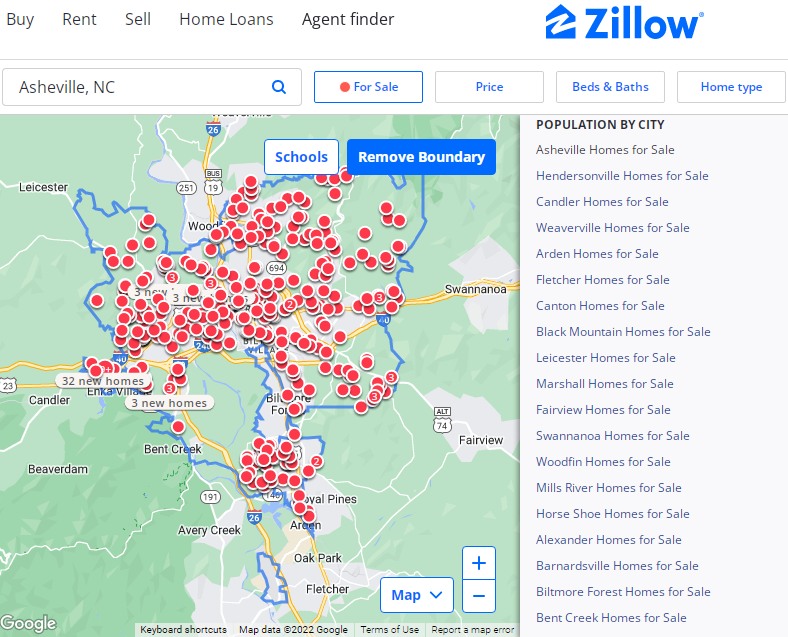
You definitely should emphasize the pages on your site you consider the highest priority, rather than link to every page on every other page and not make any distinctions or judgment calls. Apply the 80/20 rule, and apply the “Would someone ever find this link helpful and click on it?” test when in doubt. As long as you do those things, I’d suggest a heavier touch rather than a lighter one.
16. Having your content plagiarized. Under some circumstances that can take a bits out of you. If a Big Soulless Corporation lifts whole pages of your content, Google may conclude (wrongly) that it’s the original or more-definitive source based on the size and age and quality of its backlinks profile, which may be stronger than yours. Or if your SEO effort is very feeble or very recent and you’re up against a competitor who’s not only been ranking for a long time and getting links, but who also pinches your content right away, then the plagiarized version will probably outrank your original. Those are relative edge cases. More likely than not, the plagiarist is just a lazy ankle-biter, and the plagiarized content won’t rise far above your boot waffle.
17. Changing website platforms. There are many ways to screw up your rankings during or after a migration. Wiping out content, title tags, and URLs are chief among them. Moving to a platform that’s buggy or unnecessarily hard to work on (e.g. Wix) or moving to an unreliable host can hurt you, too. But the mere act of moving to or from WordPress, or to or from Shopify, or to or from a hand-coded site won’t hurt you – or help you. Where the moving truck is headed matters much less than what happens while the moving truck is on the road.
18. Targeting multiple cities on one page. By that, typically I mean that at the very least mention at least a couple of relevant cities or other areas in the title tag and somewhere ON the page – like in a “service area” section – and maybe have a section on each physical location or individual service area. Usually I also recommend (if applicable) putting each office’s NAP info somewhere on the page, and adding whatever locally relevant content you can. Often you don’t need to do any on-page work at all to rank in a certain place, mainly because it also depends on where your business is located relative to the searcher. In any event, what I’ve seen time and time again is that you don’t “dilute” your relevance to one place by trying to focus on a page on several places. You may not rank in all of them, but in general you won’t hurt any rankings you have in one city by trying to grab what you can in other cities, too.
19. Slow page-load times. Everyone’s site could be faster. Not everyone has great reviews, relevant links, detailed info on services, and other coins of the realm. Rankings just don’t ever seem to come down to page speed. If your competitors don’t have greased-lightning sites, and especially given that Amazon and Google themselves have less-than-perfect load times, you need to grade yourself on a curve. Now, if Googlebot can’t index what’s on your site, that’s a problem. If your site returns server errors that make your site inaccessible for more than a couple of days, that’s also a problem. Those aren’t issues of page speed, though. There’s no need to worry about a drop in visibility if (for instance) you add some photos and see a drop in speed, or if your site isn’t quite as speedy as a competitor’s. This ain’t Dodge City.
20. Interlinking a few sites that you own, control, or influence. Sites that rank well and that don’t rank well do that all the time, often for considerations that have nothing to do with rankings. It’s a practice that predates Google. Should you get 70 sites and blast links between them? Probably not. 5 sites? Won’t hurt, and may help a whisker.
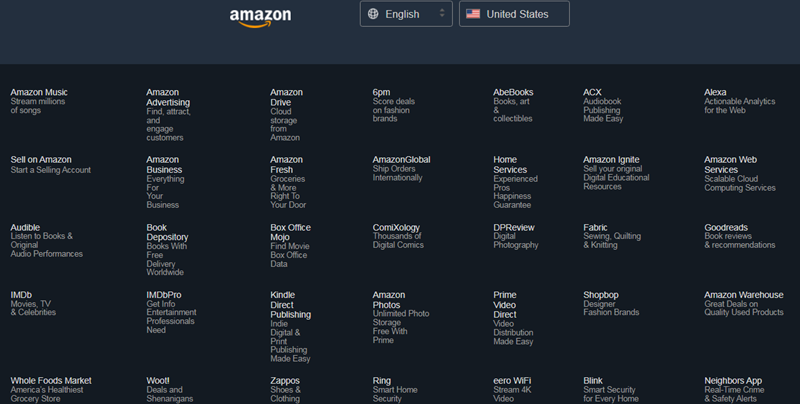
21. Long pauses in your SEO work. You need to do (or have someone else do) basic preventive maintenance on your site. You need to keep an eye out for spammy competitors on the map and do what you can to minimize their number, so they don’t hogtie you in your sleep. If your highest visibility and fattest profit have roughly corresponded to reviews you get, useful content you add to the site, and links and publicity you get, then you’d be silly not to keep that up.
What you generally do not need to do is work on SEO every day, every week, or even every month. That’s because the action items change somewhat over time, because effective work tends to stick, and because often you won’t see the effects of what you do for weeks or months. Just because you’ve let some time pass between blasts of work doesn’t mean your rankings are worse off for it. Frequent check-ups are important, and frequent work is great if you can do it. Constant tweaking or fidgeting is neither.
—
To what extent has any of those 21 factors ever seemed like a problem for you?
If you’ve seen big drops in rankings or traffic, what turned out to be the likely cause?
Any questions, observations, or stories? Leave a comment!

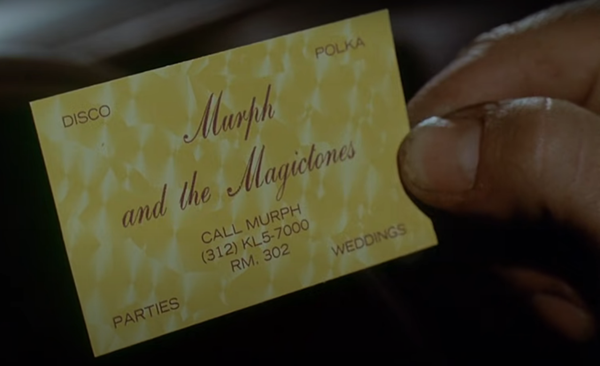
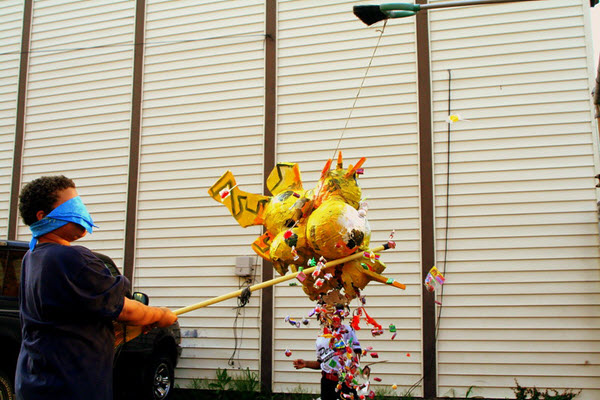
Great article! I was drawn to the section about getting new reviews filtered since I’m experiencing that. I’m a web designer and my client recently posted a Google review (the last review was more than a year old). My client’s review didn’t show up in Google, so I asked him to repost it. He signed into Google and saw the review for my business, and it was marked as “new”. He sent me a screenshot so I could see it. I noticed the review count hadn’t been updated to reflect the additional review but it was there. The review was great, and the only thing I noticed was one word in all caps. That review was almost 3 weeks ago, and I have yet to see it. No idea why it never got posted or if there’s a way to rectify it.
Hey Theresa,
Google has been filtering more reviews lately. My post from May has some action items that may help:
https://www.localvisibilitysystem.com/2022/05/10/google-throws-more-reviews-into-the-filter-van/
One other thing to consider, if you haven’t tried it already, is not giving everyone a direct “review link.” Some people should just Google you by name. That’s to mix up the referrer path a little.
Thanks Phil, I’ll checkout that article and try your other option too.
If you can get a screenshot of the review from your client, you need to go to the Google Business Profile Help Center and ask for help there.
OMG, Phil, are you looking at Asheville real estate? It seems like everybody else is moving here!
No sir! I’m a lifelong Masshole. Just picked a city that started with “A” 🙂 I do hear it’s a great place, though.
+1 for sneaking in a Blues Brother’s reference in a local SEO post!
Fix the cigarette lighter!
Quality article as always Phil. The blogging bit made me smile, my personal nemesis and refreshing to hear after years of hysteria of young marketeers telling us we must continually blog. I tend to do fits and spurts, trying to create content with normally a longtail aim in mind. It’s all long-term effort and does work if you have the time and patience. It’s rare a long-standing piece of content drops, and seems to ride most Google storms pretty well, or at least that’s my experience over nearly 20 years.
But it is time-consuming if done properly, (ie researched and crafted, not low value fiver rubbish), and there is always something far more exciting to do or tinker with
Thanks, Steve. You hit it right on the beak. Blogging is great (where would I be without it?), but it’s only part of the strategy, and not the whole strategy itself. Also, as with everything that has a super-low barrier to entry, there’s a high barrier to results.
Thank you again for all the vital and valuable information you provide people!
In reference to the below pasted.
(But what if the name of the business is all branding and no keywords, while the domain is very “optimized”? Or how about the other way around? I have not seen that Google dings you for either kind of mismatch. Just trust your gut on the branding.)
I can vouch for this. Name of business is slightly key word stuffed and domain totally different but we often rank 1st page, 1st result in Google search without ever paying for advertisement in 2yrs.
The ranking also varied depending on which of the several key words available for this industry was used.
However, we do get a new 5star review every 2-7 days persistently so that should be considered as well.
I thought I would share that with you. Thank you again!
Thanks, Patrick. That sure squares with what I’ve seen, on both ends of that seesaw.
The reviews help in a broad sense, and my gut sense has always been that they can help one’s GMB name to stick, if the reviewers generally corroborate that version of the name.
The 15th point, ” Heavy internal linking ” is something that I missed till today. Thanks for your insights, Phil. This article will be bookmarked for further reference
For sure, Ujesh. Generous internal linking is critical. Of course, by itself it won’t make a bad page rank, but without it often even a good page won’t rank.